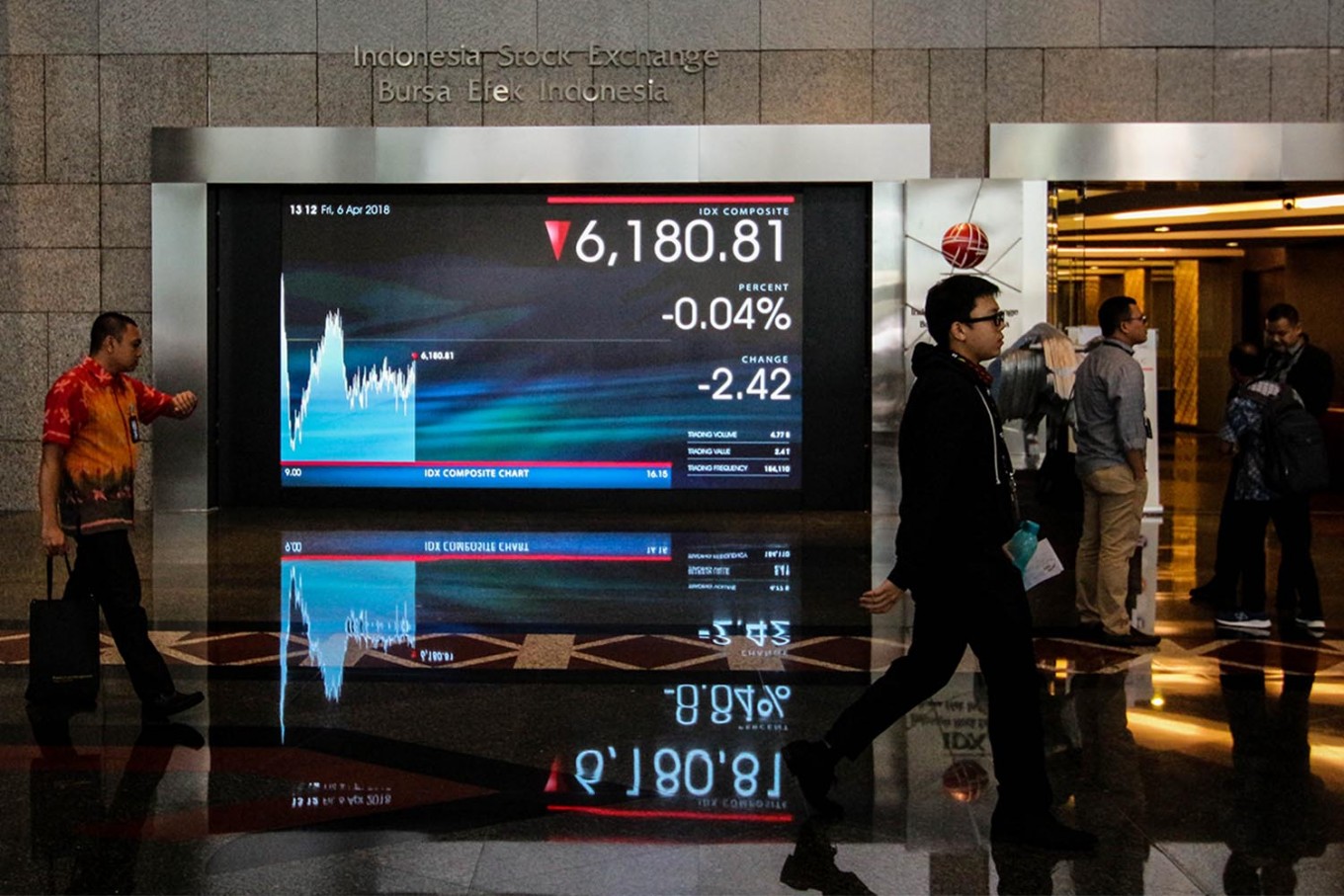Popular Reads
Top Results
Can't find what you're looking for?
View all search resultsPopular Reads
Top Results
Can't find what you're looking for?
View all search resultsGovernment to offer tax incentives for capital market instruments
Change text size
Gift Premium Articles
to Anyone
T
he government plans to launch a financial deepening program comprising tax incentives for several investment instruments to attract more long-term investors and increase activity in the country’s capital market.
The incentives will be available for collective investment instruments, such as infrastructure funds (DINFRA), asset-backed securities (KIK-EBA) and limited participation mutual funds (RDPT).
The tax authority had completed talks on income tax incentives for long-term investors who invested or planned to invest in either of these instruments, said Finance Ministry Tax Director General Robert Pakpahan in Jakarta recently.
Rofyanto Kurniawan, head of the Center of State Revenue Policy at the ministry’s Fiscal Policy Agency (BKF), confirmed Robert’s statement, saying that his agency and other related governmental bodies had finished discussing the plan.
“The regulation is being processed by the Law and Human Rights Ministry,” he told The Jakarta Post via text message, adding that it would hopefully be issued in the first half of this year.
He, however, refused to go into detail on the regulation.
The tax incentive has been much anticipated among capital market industry players. The Indonesian Investment Manager Association (AMII), for example, has been waiting for good news but its chairman Edward Lubis said he had no knowledge of the regulation.
“We hope it can provide equal tax treatment for all collective investment instruments and can simplify the taxation scheme as we requested,” he told the Post on Friday.
Edward said the request was based on the fact each instrument was regulated by different regulations and had different tax rates.
For example, DINFRA, the regulation for which was issued in 2017 by the Financial Services Authority (OJK), did not even have a dedicated tax regulation as the tax authority had already imposed a bond income tax on investors.
On the other hand, Edward said a limited participation fund was even charged double taxation. It was feared these different taxation schemes would discourage investors from investing in those instruments, he said.
Anil Kumar, a fixed income analyst at Ashmore Asset Management Indonesia, said that tax incentives might be a good way to attract long-term investors to the country, but that the government should also be wary of the consequences of increased use of these alternative investment instruments.
“The incentive might prompt investors to move their money to these collective instruments, but it could create an imbalance with other investment instruments,” he said.
He said the imbalance could result in some instruments becoming less liquid and could impact the market. He advised the government to conduct a thorough assessment of the possible impacts of the incentive.
Other than devising a new rule on collective investment income tax, the government is also discussing a tax incentive scheme for bond investors to deepen Indonesia’s bond market. Unfortunately, discussions seem to have moved at a snail’s pace in the past few years.
BKF head Suahasil Nazara said the obstacle remained the technicalities of creating the scheme, as different tax rates were applied to different investors.
For example, he said, a zero percent income tax rate applied to pension funds, while a 5 percent rate was charged on asset managers. This had led the BKF to question what the best scheme would be for investors, he said.
“We still want to apply fair rates to every investor depending on their needs,” he said.
Edward of AMII said his association would support the government’s plan for an income tax incentive for bonds, as long as the rate was competitive and a lower rate was applied for asset managers, as this could encourage investment in mutual funds.
Another obstacle, Suahasil said, was whether the incentive would be applied to government bonds or corporate bonds.
“We still have to discuss this in detail because we don’t want this incentive to trigger a shift of funds from time deposits to bonds, instead of deepening the financial market,” he said.
Meanwhile, Anil of Ashmore suggested that authorities develop an electronic trading platform for the secondary bond market to create a transparent environment that would enable direct bond trading between asset managers.
“This could make the secondary market more active, which could also help deepen our financial market,” he said.










